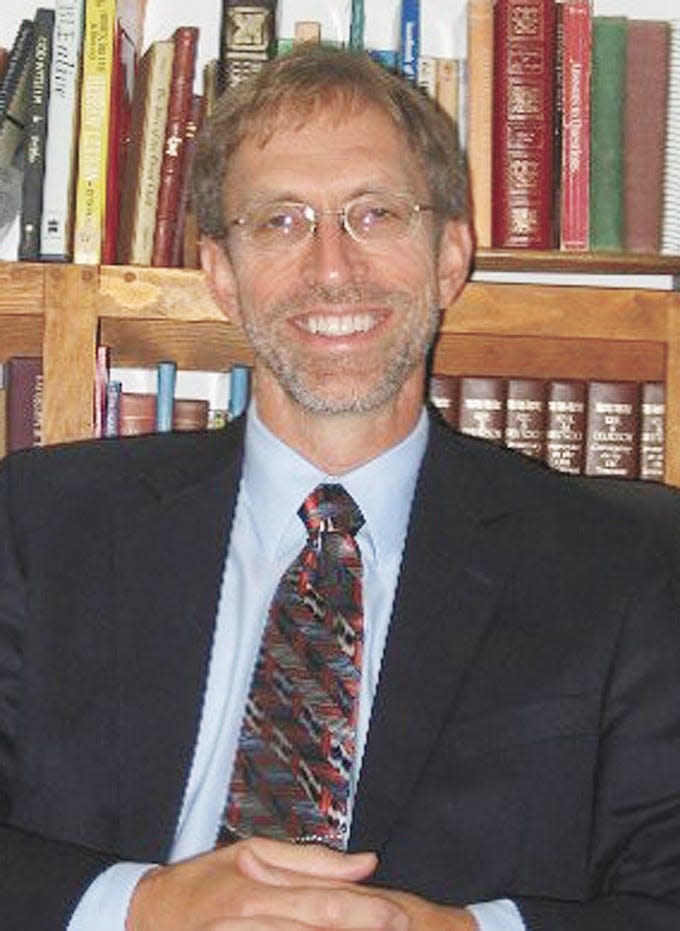A shot across the bow: Coming to terms with death
Death, like a Victorian era visitor, often sends a calling card to announce its arrival. But death is no gentleman. It sometimes comes silently, like a robber. At other times, it delivers a warning. It fires a shot across the bow; cautions people to change direction or face the consequences.
I received my shot across the bow, six years ago. In an annual health checkup, my doctor heard a bruit in his stethoscope. It sounds, he told me, like the current flowing around a rock in a stream and signifies a blocked artery. That led to a diagnosis of a subclavian steal, a blockage in the large subclavian artery.
Eventually, I underwent a stress test and then a heart catheterization, and then coronary angioplasty and stents. After the stress test, which I expected to pass with flying colors, I received a call from the hospital: “The doctor wants you here right away, but we have no openings until Wednesday.”
I, who was feeling fine and had only recently taken a break from basketball because of a shoulder injury, replied: “My wife and I are going hiking this evening…” At this, the caller raised her voice in alarm and said, “Don’t do that! No exertion until you see us on Wednesday.” She repeated that line two or three times to make sure I understood.
Prior to the heart cath, I spoke with the cardiologist. He said, “I expect it’s a false positive, but we just need to make sure.”
It was not a false positive. It turned out that I had three coronary artery blockages. One, in the proverbial “widow-maker” artery, was at 95 percent, another was at 90 percent, and yet another around 70 percent.
It was a shot across the bow. I, the basketball playing hiker was not going to live forever. I had come face to face with my own mortality.
The doctor encouraged a change in lifestyle: less red meat, more vegetables, daily exercise. I already ate a better diet than most people, walked a couple of miles a day, and exercised twice a week. In addition, I had played basketball weekly for decades. I pointed this out to the cardiologist, who said simply, “It’s genetics.”
The sound of that warning shot still echoes. I will die. As they used to say in the gangster movies, “No one gets out alive!”
The shot across the bow comes in various forms. For a friend of mine, it came as a premonition of his own death. As he stood next to his father, who was greeting mourners at the head of his grandfather’s casket, he suddenly knew it would not be long before he stood, his son by his side, at the head of his father’s casket. And then his son would stand at the head of his casket.
When death fires its shot across the bow, people respond in different ways. Some ignore it and continue on, full speed ahead. Others completely change course, hoping to avoid death as long as possible. I chose a middle way: face facts, make changes – ones that seem wise within the larger context of my life – and use the time I have on earth to know God and love people.
Whether one receives a shot across the bow or not, to walk in the way of wisdom one must neither ignore death nor fear it. Death, by God’s design, plays an important role in human lives, and wise people will take it into account. Yet they will not overestimate it by regarding it as life’s most important issue.
A wise person realizes that the shot across the bow will eventually be followed – who knows when? – with a shot that will land midship. It may be delayed; it cannot be prevented. Accepting this reality and acknowledging God’s goodness even in death, is a large part of wisdom.
The wise are not terrorized by death. If they are Christians, they see death as transition, not termination. In death they find, as the Book of Common Prayer puts it, “the gate of eternal life.” And they know who waits on the other side of the gate.
Shayne Looper is the pastor of Lockwood Community Church in Branch County. Read more at shaynelooper.com.

This article originally appeared on Hillsdale Daily News: Opinion

